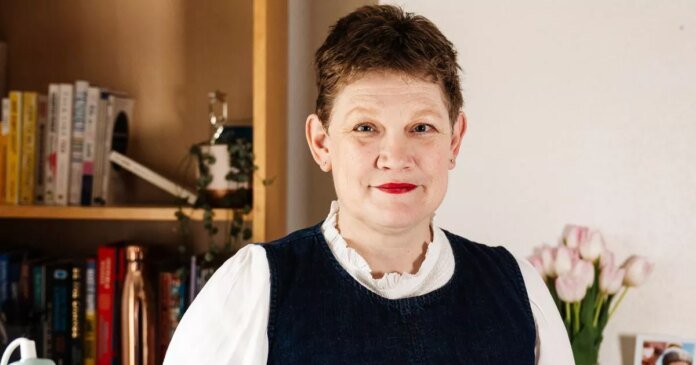An individual providing care without payment has delivered a serious caution to individuals who are not yet responsible for supporting a disabled family member.
Katy Styles, a former geography teacher from Canterbury, transitioned to a full-time caregiver role in 2014 to attend to her spouse Mark, who suffers from motor neurone disease. In addition to caring for her husband, the 57-year-old now tends to her elderly mother, who has experienced multiple strokes and significant vision loss, and her mother-in-law, who is battling dementia.
Expressing her concerns, Katy highlighted the lack of awareness among individuals who are not yet caregivers about the challenges they may face. She emphasized the absence of a readily available support system despite common misconceptions. Katy particularly noted the impact on women of a certain age, who might be juggling parental responsibilities, menopause, and employment before unexpectedly transitioning into a caregiving role for a loved one due to unforeseen circumstances.
Katy shared her personal journey as a caregiver as a recent report by the Institute for Public Policy Research (IPPR) highlighted the increasing demand for informal social care and the aging population, projecting that millions more people will likely take on caregiving responsibilities in the future, often leading to job resignations.
Reflecting on her own experience, Katy recounted her decision to leave her teaching career in 2014 to become a full-time caregiver, a role she initially did not fully recognize or understand in terms of her rights. Despite her dedicated care work, Katy relies on a meager Carers Allowance of £83.30 per week, expressing the challenges of managing escalating care responsibilities without a sense of control over her and her husband’s lives.
She underscored the complexity of caring for family members with varied health conditions, emphasizing the lack of tailored support services, especially for her mother who is frail and visually impaired. The increasing strain on unpaid caregivers was highlighted in the IPPR report, indicating a 70% rise in individuals providing over 35 hours of unpaid care weekly.
Recent data from the Joseph Rowntree Foundation revealed a substantial increase in full-time unpaid caregivers in England, while formal social care support applications for the aging population have seen a significant rise. The report emphasized the urgent need for adequate staffing and funding in social care, a cause championed by The Mirror’s Fair Care for All campaign.
Katy’s personal plea for better support echoed the frustrations of many unpaid caregivers who are overwhelmed by their responsibilities and the lack of government action on social care reform. The campaign advocates for dignified treatment of older individuals, the establishment of a national care service alongside the NHS, the appointment of an elderly affairs minister, and a well-funded care system that caters to all individuals.
Furthermore, the campaign calls for fair compensation for care workers, including payment at the real Living Wage, an end to brief home visits, and an increase in allowances for unpaid caregivers. The collective voices of caregivers urge prompt action to address the pressing challenges in the current social care landscape.
